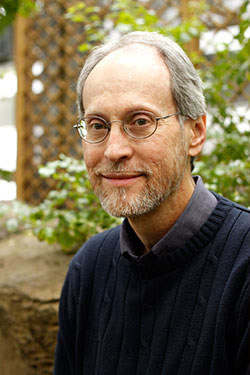|
The laconic comedian, Stephen Wright, once said, "I'm writing a book. I've got the page numbers done." Now there's a man determined to tame the shaggy beast, as Henry James once called the novel form.
I don't know about you, but I'd prefer a more practical strategy for getting the job done than just imagining I could get to the end by putting numbers on blank pages. My own experience with writing novels tells me that the first steps onto the page begin to lay out a trail I can follow as I go. I'm convinced we can learn to let our novels write themselves.
Henry James also said this: "The only obligation to which in advance we may hold a novel, without incurring the accusation of being arbitrary, is that it be interesting." Perhaps the most important ingredient to the forward motion of a novel, then, is curiosity, not only for the reader but for the writer as well.
Sometimes this curiosity comes from an element of mystery in the opening of the novel, as is the case in this first line from Pete Dexter's The Paperboy : "My brother Ward was once a famous man." If that line popped into my head before I knew nothing more about the novel it was going to open, I'd already have a few questions in my mind. Why was Ward famous? Why is he famous no longer? What's the relationship like between the two brothers, and how has Ward being famous, and then not, affected it? A whole novel contained in a single opening line. A string to follow backward and forward with the writer's curiosity as a guide.
In the case of The Bright Forever, I wanted to propel the reader and myself along a trail of mystery, so I opened by having a character say this, "I'm not saying I didn't do it. I don't know." Hmm…what's the it, and why wouldn't he know whether he was the responsible party? And if he didn't do it, who might have? All these questions to answer as the novel unfolds. My novel Break the Skin opens with the line, "The police came for me in the middle of the night." The speaker is a young woman, Laney, and she's a quiet sort most people wouldn't think would ever be in trouble. What's happened to cause the police to come for her? I had to write the novel to find out.
It's not just mystery that leaves us a trail to follow. Sometimes it's an action that suggests a past, a present, and a future, as in the opening of John Dufresne's Love Warps the Mind a Little when the narrator says, "The day I finished my best story yet—about a social worker whose child gets Lyme disease, slips into a coma, suffers brain damage, becomes a burden to his father—after I typed it, retyped it, and mailed it off to the Timber Wolf Review, my wife, Martha, came home from work and, just like that, asked me to leave our apartment forever. What's with you? I said, as if I didn't know. She packed my green plaid suitcase, threw toiletries in an overnight bag, and set it all by the kitchen door."
What's the story with Martha and her husband, the narrator? Why does he say, "as if I didn't know"? What's the history between them, what series of events has this one action set into motion, what journey will they both be on, who else has been and will be involved, will they save their marriage or will they part ways for good? The entire arc of the narrative invited from this first action involving forward motion and a suggestion of cause.
The causal chain is extremely important when writing a novel, and the novelist should always be thinking of how every element that presents itself can contribute to what's to come. A useful thing to do when reading novels is to think about how a scene later in the book is only possible because of scenes that precede it. If you look, for example, at the final sequence of events in The Great Gatsby, beginning with Chapter 7 and leading to Gatsby's death, you'll see what I mean.
So much of writing a novel is a matter of arousing your own curiosity and then paying attention to the cues you yourself set down as you write. Isak Dinesen said, "I write a little every day without hope, without despair." If you can do that, and if you can let your own desire to know propel you into narrative, you can fill those numbered pages of your novel in no time. Start by crafting an opening that makes you curious. Think about how one action creates another. Follow the chain to its end.
|


